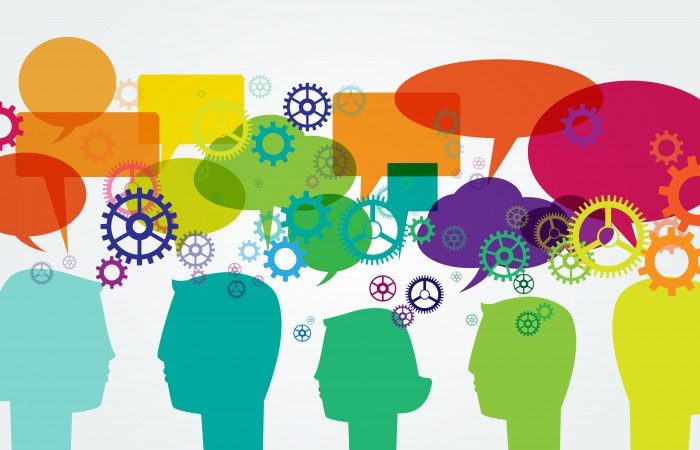March 14, 2018
What is Social Intelligence and How can it Make Your Business Money?

There are over 1.5 billion conversations every hour on social media and most organizations realize that it’s a powerful tool. As social technologies mature, they are taking on a broader role in competitive strategy. Social media is no longer just a place where people socialize. It’s a treasure trove of deep data that can make your business a lot more money if you pay attention.

What is Social Intelligence?
The old way of gathering social intelligence was very labor intensive. It involved market research from public and proprietary resources, gathering insights from months-long analytics methods, and producing large reports for internal stakeholders (none of which they probably read). Social data was often only visited on a yearly basis because it was that hard to obtain.
Today, the concept has changed in almost every aspect because the internet produces big social data like never before. Today’s social intelligence is more about analyzing conversations and online behavior. This produces a set of data that can lead to greater insight and understanding of business operations. It can make a business the fly on the wall.

Social media has created a new way of mapping information. The old way of collecting data involved information from primary sources like experts, employees, and suppliers. It also looked at secondary sources like articles and market research.
Social intelligence today works on a whole new level. It examines people and their conversations in social spaces. The new “experts” are every single consumer and influencer talking about your brand. That’s why there are endless benefits to employing a social intelligence strategy within your business.
The Benefits of Social Intelligence
Although many companies understand the importance of social intelligence and gathering data, they often fail to do anything with it. Perhaps it is because people still don’t truly understand the value of social intelligence. It can be applied to many strategies not only in marketing, but in your business as a whole. The following are just a few of the many advantages collecting social data will give you:
Identifying Micro-trends
Trending is like waves in the ocean. One comes after another and then crashes into oblivion. Micro-trends are like the waves just forming. The ones you can surf the best. Maybe a silly analogy but what it means is that you want to pay attention to the waves that can be surfed. These are the micro-trends that will allow you to get ahead of your competition. The sooner you identify them, the more likely you are to gain market share.

Analyzing social intelligence will help you to identify trends faster. The internet is replete with tools to gather social data in every form, from social monitoring to social surveying, they’re at your disposal. Gathering social intelligence will always give you a competitive edge.
Predictive Analytics
Examining social intelligence allows a company to test various strategies without taking any risk. For instance, you may have an article you publish that doesn’t get a lot of likes. Changing the headline can work wonders. You can even change it a few times and test the social results. Then use that data to curb future decisions.

PA Consulting Group is a company that tested their social intelligence to determine the value. They specifically wanted to see if they could predict the future occupancy rate of a hotel using social data. They were able to achieve 98% accuracy just by employing social intelligence. That’s predictive analytics at its finest.
On the Fast Track
A marketing analyst typically spends 80% of their time collecting data, and 20% analyzing. At least they used to. Using social intelligence turns that all around. Analysts have access to a variety of tools that allow them to create dynamic maps to pinpoint expertise within social data. And it doesn’t have to be an expert anymore.
General Electric’s social campaign is a great example of utilizing social intelligence to gain quick results. In an effort to gather new ideas about what it called a “social airplane,” they offered prizes on Virgin Airlines to gather insights.

They did this by creating the Twitter account @ecomagination and organizing key topics around specific hashtags. The result was more than 90,000 people following and thousands of new ideas within just 2 hours. A traditional campaign like this would have taken weeks.
Better Than Market Research
Social media provides the answers to critical business strategy. This often allows an organization to quickly report progress to board members and stakeholders. It can provide key evidence to back up major business investment. Because of the sophistication and volume of analysis that social intelligence provides, it can never compare to market research. Which really just equates to studying old numbers.

To employ social intelligence that competes with market research, you should understand exactly how it can benefit your company. Social intelligence analysis can give much deeper insight in a variety of ways. It can answer questions like:
- The perception of customer service and how it compares to competition.
- The best ways to reach a certain target market.
- Future product suggestions customers may prefer.
- The key complaints that no one is telling you.
- How your competition is winning and failing.
It’s simple. You are using public commentary and behavior to make future decisions. It just happens to be online.
Competitive Analysis
Social media and the internet allow you a thousand ways to study your competition. It’s called “competitive intelligence” and it’s right there for the picking. Social intelligence will allow you to not only know what your competitors are planning but have open access to their successes and failures too. This isn’t about espionage because the data is public. It’s simply about intelligence.
 Advanced social intelligence allows a company to study their entire business sector. It permits the opportunity for a broader study that encompasses social data points like:
Advanced social intelligence allows a company to study their entire business sector. It permits the opportunity for a broader study that encompasses social data points like:
- Clients
- Suppliers
- Employees
- Stakeholders
- Competitors
- Key influencers
- Potential competitors
- Potential clients
These social outcomes can then be used to develop crucial influence tactics. This creates the blueprint for reputation-enhancing signals and content strategy like blogs, press releases, social media posts, etc…
The Risks of no Social Strategy
Opportunity always brings risk. If you fail to gather the correct social data, at the right time, you may have issues that could affect your bottom line. 78% percent of people say they trust what they read on social media. Even when it’s bad. If you don’t practice some type of social monitoring that listens to your audience, you may miss a bad comment or review.
72% of people that tweet a complaint to a brand expect a response within an hour.

If you’re not looking at social intelligence, how will you answer them so quickly? And it doesn’t have to be a live person. Chatbots and automation can address issues on the bottom tier until you have the time. The idea is at least you are responding to consumers and meeting their expectations in a timely manner.
Not having a social strategy will also keep you from key insights you can gain from social media. If consumers are talking about a new product they want to see or a better way to offer a service, don’t you want to hear that? When you go in the direction of suggestion, it often leads to a higher ROI. It is also powerful data to convince investors on a new project.
Getting Senior Management Onboard
McKinsey reports that a popular complaint for marketing analysts is that senior management is not quick to act on information. That may often be due to dated intelligence practices. Reports can be formal processes that are sent through e-mail or newsletters. The information is then dated when it finally gets into the hands of key decision makers.
Social intelligence software changes all of this. It allows organizations to rapidly collect and curate social data that can be sent in real-time to the right people. Decision makers can be dispatched instant market data that allows them to make more informed choices.
One company that has crafted their social intelligence reporting in this manner is Canadian financial cooperative, Desjardins. Using a tool called Flipboard they can deliver social data that is tailored to departmental needs. They do this by allowing key influencers to scan financial services and technology to help them make lightning-fast decisions. Desjardins is essentially curating important social data from the audience itself.

Social intelligence can make your business money because it is the future of marketing. It allows unimaginable opportunities for you to better understand your customers, suppliers, and employees, in a much more defined social context. Simply put, social intelligence is what a company needs to meet competitive challenges and gain market share.
The process requires more than collecting social data. Social conversations need to be had and there must be some aspect of engagement. The companies that succeed build a community around their brand. Social intelligence will immerse an organization with new information, consistently sharpen strategic insights, and strengthen consumer relations.







